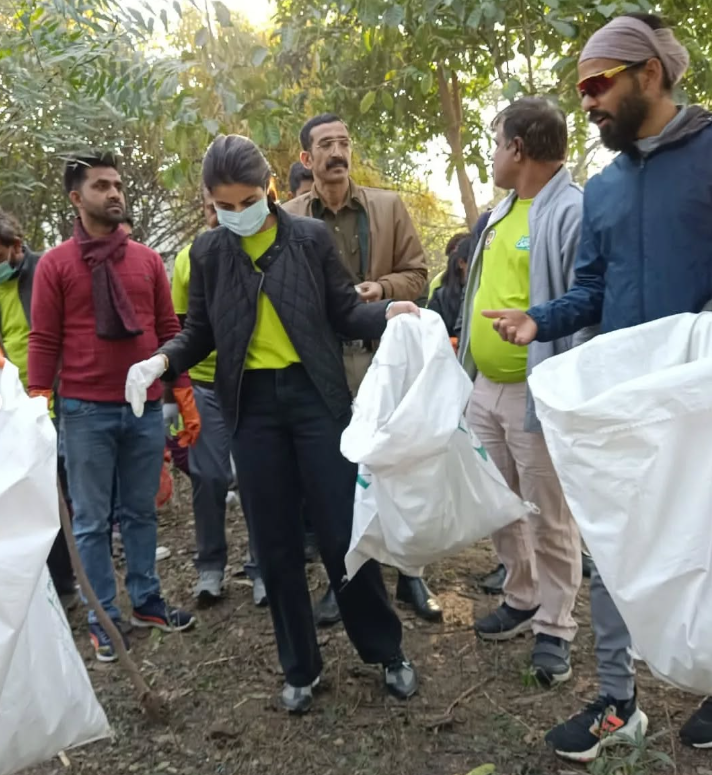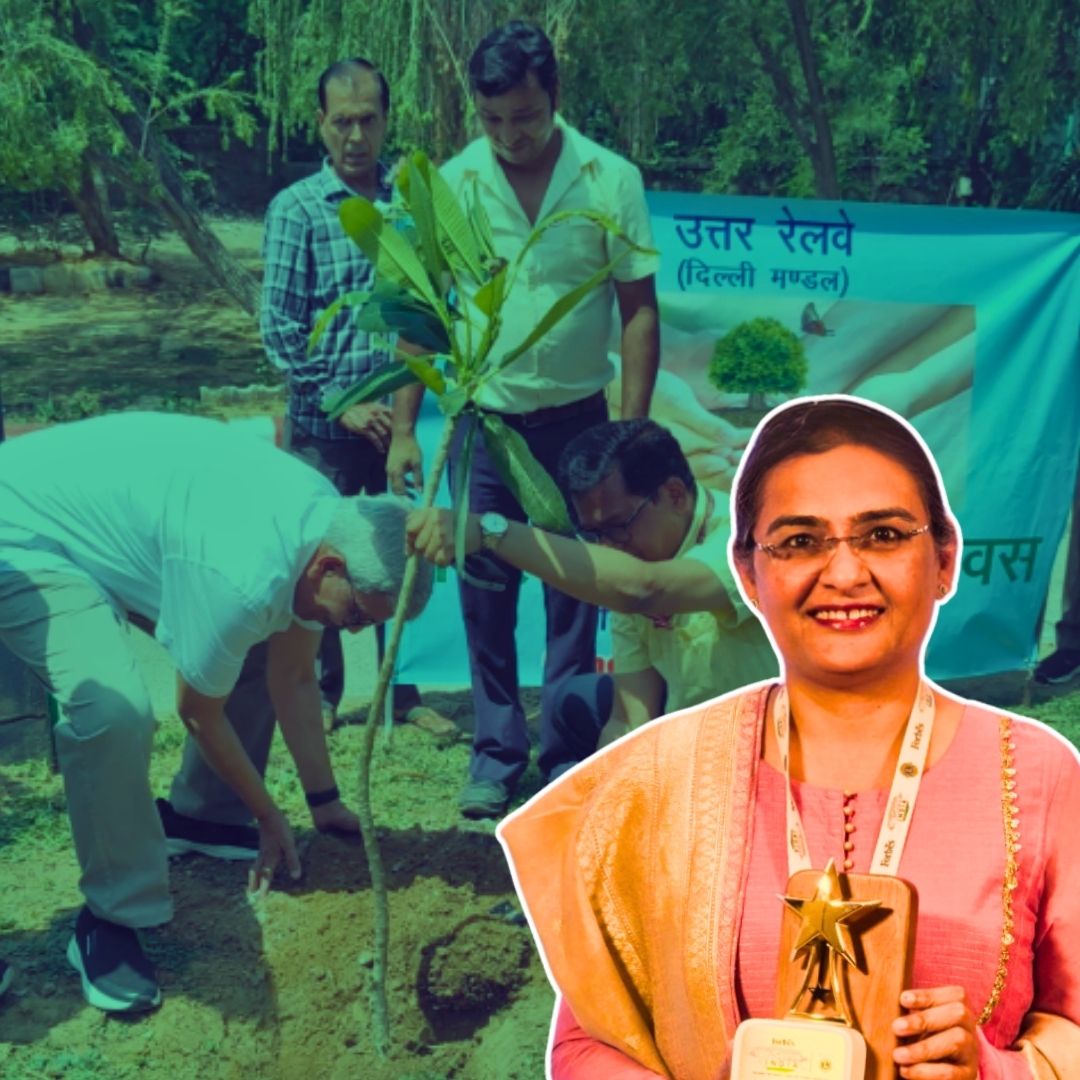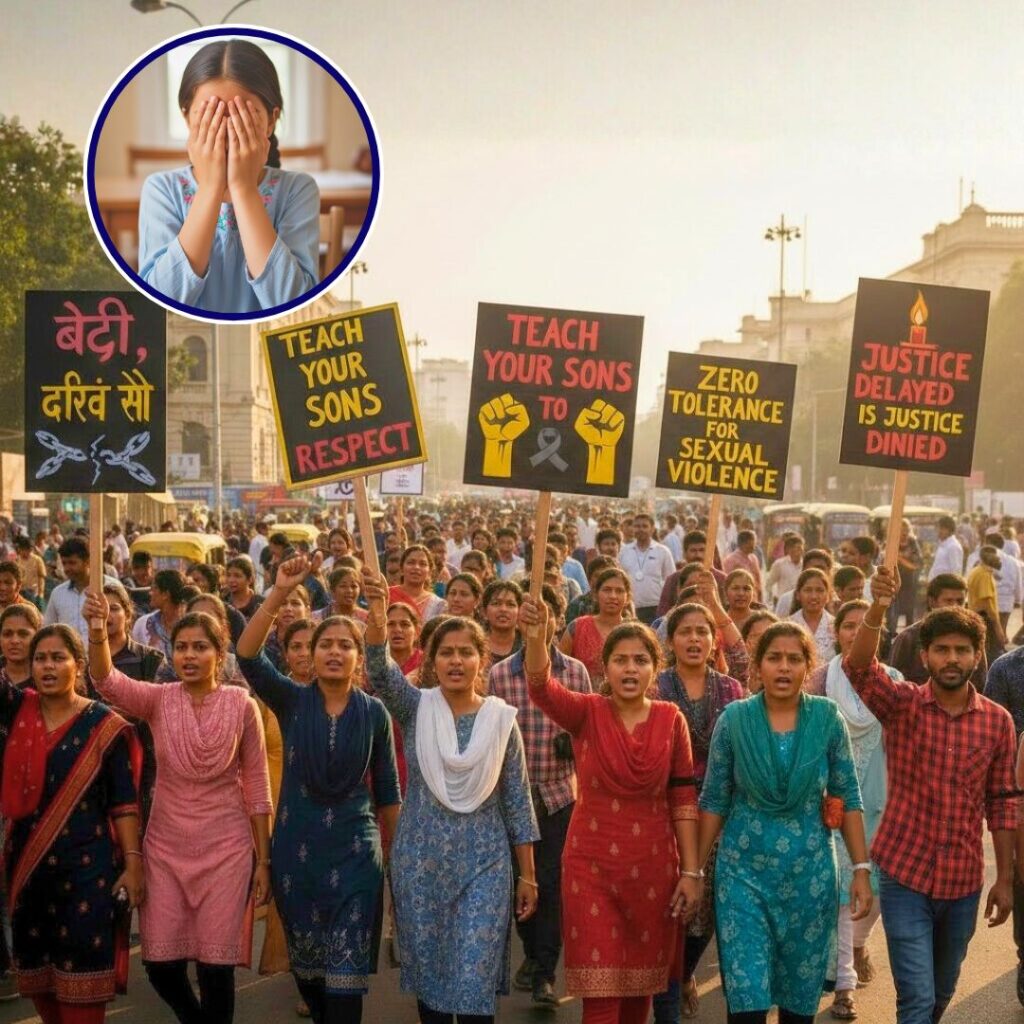Eight years ago, Dr. Ruby Makhija, an ophthalmologist and passionate environmentalist, took up the mantle of RWA secretary in Navjivan Vihar, South Delhi. What began as a mission to tackle a single problem—waste management—has transformed into a citywide model for sustainability.
Today, not a single bag of garbage from this colony of 280 families reaches the landfill, thanks to Dr. Makhija’s vision and the collective action of her neighbours.
This story is about how one woman’s determination and community spirit can create a ripple effect, inspiring others to reimagine urban living for a healthier planet.
Dr. Ruby Makhija: Founder, Leader, and Change-Maker
Dr. Ruby Makhija is not just a doctor but a dynamic leader with a vision for a cleaner, greener future. She is the Founder and Director of the Why Waste Wednesdays Foundation (WWWF), a platform dedicated to promoting sustainable living, waste management, and environmental awareness. As a two-time TEDx speaker and Earth Day Network Star, Dr. Makhija has inspired countless individuals to take action for the environment.
Her core competencies include leadership, behaviour change through innovation, and effective communication. Dr. Makhija is also the Brand Ambassador and a member of the City Level Task Force for Plastic Waste Management at the Municipal Corporation of Delhi (MCD). She chairs the Local Committee, District South, advocating for gender equity and safe workplaces for women, further exemplifying her commitment to holistic community development.
Before founding WWWF, Dr. Makhija provided eye care and surgeries to patients in rural areas, demonstrating her dedication to both health and environmental causes.
The Zero-Waste Journey: How Navjivan Vihar Did It
Dr. Makhija’s journey began with a simple yet powerful idea: to ensure that all waste generated within the colony is either composted or recycled.Driven by her firsthand experience as a doctor witnessing the health impacts of poor sanitation, Dr. Makhija saw her new role as an opportunity to bring positive change to her own neighbourhood
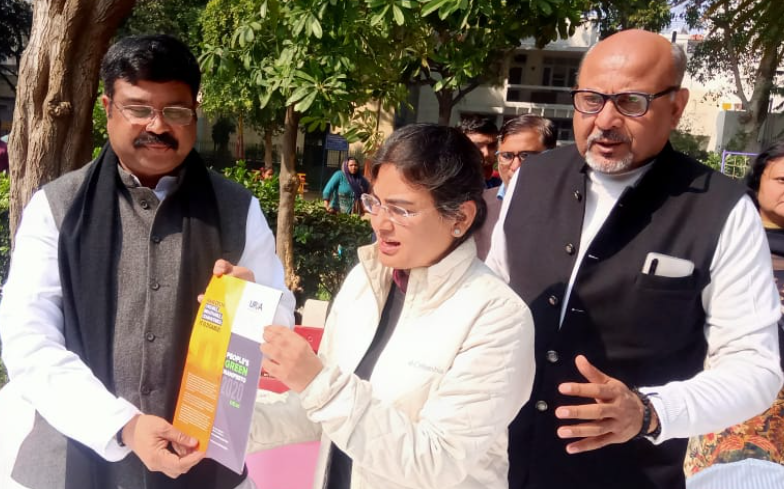
She and her team embarked on door-to-door awareness campaigns, explaining the importance of waste segregation. Residents were encouraged to separate their waste into three categories: wet, dry, and hazardous. This was a new concept for many, and initial resistance was common. Waste workers questioned their role, and some residents worried about bad smells or extra work.
Innovative Solutions and Daily Engagement
To overcome these challenges, Dr. Makhija and her team—including Mona Vashisht (fabric waste), Anuj Bhatia (water waste management and harvesting), Shammi Narang (general waste), and Gopa Banerjee (garden waste)—kept the community engaged with daily updates, short videos, and workshops. They used a broadcast system to share progress and answer questions, ensuring transparency and building trust.
Children were involved in awareness drives, and street plays were organised to make the message accessible. The colony also set up a Triple R (Reduce, Reuse, Recycle) centre, where unused clothes, furniture, and even gas cylinders were donated to NGOs. To date, over 30 tonnes of items have found new homes through these initiatives.
Impact and Recognition: Numbers That Inspire
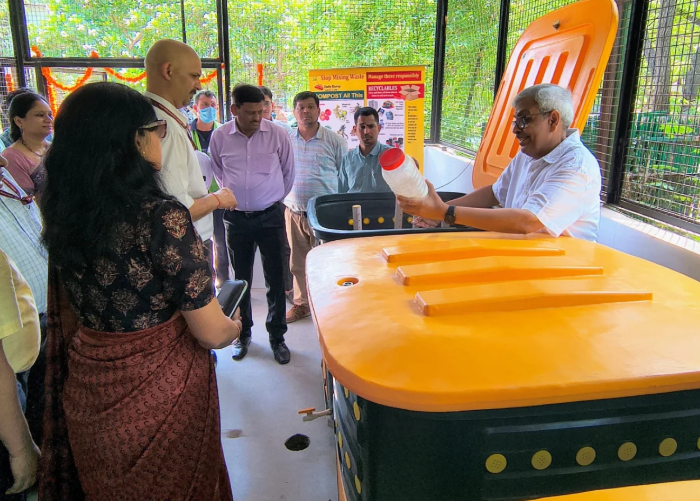
Key Statistics and Achievements
- Waste Processed Daily: 300 kg (125 kg wet waste composted, remainder recycled)
- Landfill Diversion: 0 bags since 2017
- Community Participation: 100% of households involved
- Reusables Donated: 30+ tonnes to NGOs
- E-Waste Diverted: 3,000 kg
- Plastic Recycled: 17 tonnes
Navjivan Vihar’s efforts have saved over 7 lakh kg of garbage from reaching landfills, and the colony has received multiple awards, including recognition from the Hon’ble Lieutenant Governor of Delhi and consistent first-place finishes in Swachhata Survekshan.
Beyond Waste: A Holistic Approach to Sustainability
1. Rainwater Harvesting and Water Conservation
The colony’s commitment to sustainability extends beyond waste management. Rainwater harvesting systems have been installed, and water-saving measures are actively promoted. These initiatives have reduced the colony’s environmental footprint and lowered utility costs for residents.
2. Cloth Bags and Upcycling
Dr. Makhija has also led efforts to upcycle old bedsheets, curtains, sarees, and dupattas into cloth bags. Over 10,000 cloth bags have been distributed to residents, domestic helps, construction workers, and JJ clusters, reducing reliance on single-use plastic.
3. Environmental Education and Community Events
To ensure that these practices continue, the colony regularly organises events and workshops for children, focusing on water conservation, waste management, and air pollution. Graffiti on the walls raises awareness about saving water, and nest-making initiatives aim to bring back local bird species.
Overcoming Challenges: From Resistance to Resilience
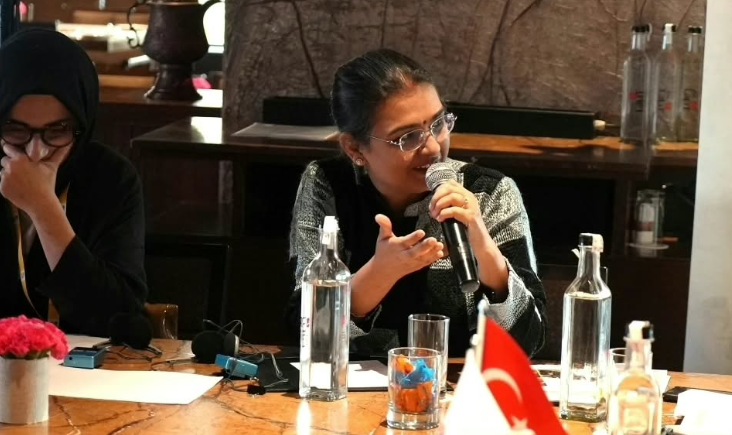
The journey was not without its challenges. Initial skepticism, bureaucratic hurdles, and resistance from both residents and waste workers were significant obstacles. However, through persistent communication, innovative solutions, and community engagement, Dr. Makhija and her team achieved full buy-in from the colony.
Citywide Inspiration and Official Recognition
Navjivan Vihar’s success has inspired other colonies across Delhi. The MCD now recognises the colony as a model for zero-waste management and has removed the ₹1 lakh cap on development work for zero-waste initiatives. Rebates on user charges for certified zero-waste colonies are also being considered.
Delhi currently has 633 certified zero-waste areas, with plans to add 100 more by May 2026 and another 100 by May 2027. Navjivan Vihar stands as the first RWA in New Delhi to attain net zero status in waste management.
The Logical Indian’s Perspective
Navjivan Vihar’s story is a testament to the power of community action and compassionate leadership. The Logical Indian celebrates this initiative as a shining example of how dialogue, empathy, and collective effort can drive meaningful change.
In a world facing mounting environmental challenges, stories like Navjivan Vihar’s remind us that every individual and community can make a difference.
